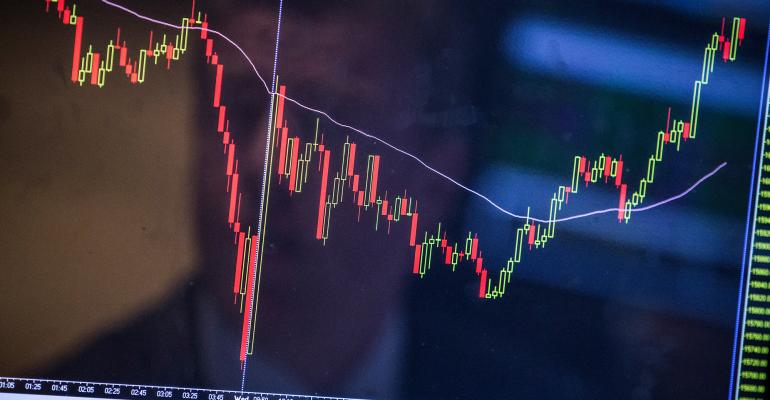Investors have increasingly embraced fixed income ETFs, favoring their low-cost, ease of use, targeted exposure and diversification.
The enthusiasm is exemplified by the popularity of target maturity index ETFs. These funds hold hundreds of bonds, each maturing within a specific calendar year.
However, investors should not just own the largest or the cheapest of these products that meet their targeted maturity, since there are differences between them.
The iShares division of BlackRock and Invesco each offer a suite of investment-grade corporate bond ETFs focused on the upcoming calendar years. The two firms also offer targeted high-yield and municipal bond products. The 2021 vintage of these ETFs has been among the most popular, particularly as interest-rate sensitivity remains heightened. The four ETFs we highlight had $1.26 billion of net inflows since the beginning of 2018 and now have $3 billion in net assets.
Invesco BulletShares 2021 Corporate Bond (BSCL) is the largest of the four relevant ETFs with $1.25 billion in assets, but iShares iBonds Dec 2021 Term Corporate (IBDM) is also sizable with $945 million. Let’s first focus on the comparison of these two.
Given the similar maturity profile, both ETFs have an average duration of 2 years and sport a 3.4 percent 30-day SEC yield. Yet there are differences from a credit perspective. Using S&P Global Credit Ratings, BSCL has more exposure to A-rated bonds (42 percent vs. 39 percent for IBDM) and less exposure to BBB (43 percent vs. 45 percent).
Though CFRA does not think investors should rely solely on a three-year track record to review ETFs, BSCL was the stronger performer as of January 23, with a 2.89 percent annualized total return (2.60 percent for IBDM). This stems from the exposure as, for much of the time, the iShares product had a lower fee.
However, Invesco acquired these BulletShares products in the Guggenheim acquisition in April 2018 and cut the fee for the investment-grade suite. BSCL and IBDM now both have a 0.10 percent net expense ratio. We had expected that target maturity ETFs were more likely used to buy and hold to maturity, rather than as tactical trading vehicles. Yet due in part to steady inflows BSCL and IBDM trade approximately 475,000 and 290,000 shares daily. Both have tight penny bid/ask spreads. Both are effectively buy-and-hold-until-maturity investments; IBDM’s annual turnover is 6 percent while BSCL’s is 7 percent.
For investors seeking a higher yield but a similar targeted maturity, Invesco BulletShares 2021 High Yield Corporate Bond ETF (BSJL) is also good option. This $555 million ETF has an elevated 6.3 percent 30-day SEC yield, due to its exposure to BB- (45 percent of assets) B- (46 percent) and CCC-rated (7 percent) bonds; for perspective, Invesco Fundamental High Yield Corporate Bond (PHB) has a 5.4 percent yield with more BB exposure (62 percent) and less B (23 percent).
BSJL charges a 0.42 percent net expense ratio that is higher than BSCL and IBDM but does not face the same competitive pressure because it’s the only 2021 high-yield target maturity ETF. BSJL trades with a wider bid/ask spread than its 2021 peers, but average volume has recently exceeded 200,000 shares a day.
Lastly, iShares iBonds Dec 2021 Term Muni Bond (IBMJ) is the smallest of these low duration ETFs with $255 million in assets. The ETF provides strong credit quality with most bonds rated AAA (38 percent of assets) and AA (49 percent), but this is offset by a more moderate 1.7 percent tax-free 30-day SEC yield.
IBMJ charges a 0.18 percent expense ratio and trades with a minimal $0.02 spread, yet its 50,000 average daily volume remains limited.
This article was originally published on MarketScope Advisor on January 24, 2019.
Todd Rosenbluth is the director of ETF and mutual fund research at CFRA. Learn more about CFRA's ETF research.





